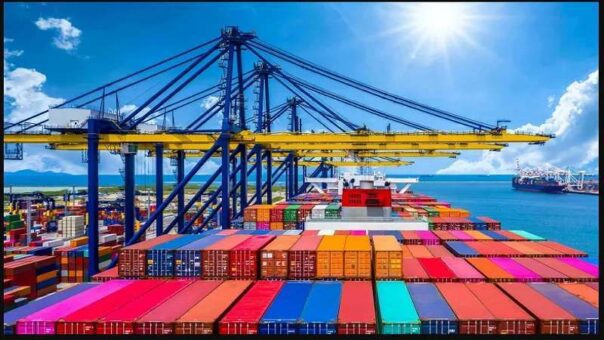Karachi, June 25, 2024 – Port Qasim released its shipping activity report for Tuesday, June 25, 2024, providing detailed updates to stakeholders about the port’s operations.
Four ships, namely TSS Amber, Sinar Mendawai, Horizon 1, and Gaslog Geneva, carrying containers, palm oil, LPG, and LNG, respectively, berthed at various terminals including the Container Terminal, Liquid Terminal, Engro Terminal, and Gasport Terminal. This diverse cargo underscores the port’s multifaceted operational capabilities.
Additionally, three more ships – Hanfnia Turquoise, Gaschem Fuji, and Serenity Gas – carrying Mogas, chemicals, and LPG, respectively, arrived at the outer anchorage of the port on the same day, awaiting further instructions and berthing schedules.
Over the past 24 hours, a total of nine ships were actively engaged at Port Qasim’s berths. Among them, the gas carrier Al-Jassasiya is expected to set sail this afternoon. Three other ships – TSS Amber, Horizon 1, and Chem Trans Ionian – are also slated to depart later today.
The Port Qasim handled a substantial cargo volume of 161,353 tonnes during the last 24 hours. This included 128,100 tonnes of import cargo and 33,253 tonnes of export cargo. The containerized cargo accounted for 2,980 TEUs, with 1,160 TEUs being imports and 1,820 TEUs being exports. These figures highlight the port’s critical role in facilitating international trade and its efficient handling of a significant volume of goods.
Currently, four ships are anchored at the port’s outer anchorage. Among them, the chemicals carrier Serenity and two container ships, Atlantic Ibis and Maersk Kinloss, are expected to take berths at EVTL and QICT, respectively, today. Furthermore, the container ship Maersk Cairo is due to arrive at Port Qasim on Wednesday, indicating a continuous flow of maritime traffic and operations at the port.
Port Qasim’s robust activity report reflects its strategic importance in Pakistan’s logistics and trade network. The seamless handling of varied cargo types and efficient port operations contribute significantly to the country’s economic growth and international trade facilitation. As the port continues to manage high volumes of cargo with precision, it remains a vital hub for maritime activity in the region.
